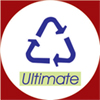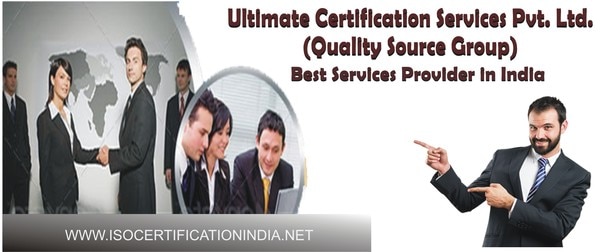


Currently it only shows your basic business info. Start adding relevant business details such as description, images and products or services to gain your customers attention by using Boost 360 android app / iOS App / web portal.

Responsible and sustainable forest management has become a vital issue during the past decades. Inadequate and improper forest management practices are threatening the long-term viability of many forests. This reduces their economic potential significantly, resulting in negative social and environmental impacts. Public awareness and the demand for certified timber products is growing, and Forest Management Certification gives the necessary reassurance that timber products originating from a forest are managed in a responsible and sustainable way. Forest managers and forest owners who choose to ignore the sustainability issue are becoming very vulnerable. Their over-exploitation leads to a serious depletion of natural resources and increased public criticism. That is why more and more managers and owners are looking to Forest Management Certification. Manufacturers and suppliers who want to guarantee that their timber products originate from a certified forest, and who want to pass this guarantee onto the end user, need to provide proof of the origin. This is accomplished by way of Chain Of Custody Certification.
INR 0 INR 1
Availability:True
Pay mode:COD only
Global Recycled Standard (GRS) addresses input material verification, chain of custody, environmental principles, social requirements, and labelling for textile products made from recycled materials. The Global Recycled Standard (GRS) is a voluntary product standard for tracking and verifying the content of recycled materials in a final product. The standard applies to the full supply chain and addresses traceability, environmental principles, social requirements, chemical content and labeling. GRS covers processing, manufacturing, packaging, labeling, trading and distribution of all products made with a minimum of 20% recycled material. It also sets requirements for third-party certification of recycled content, chain of custody, social and environmental practices, and chemical restrictions.
INR 0 INR 1
Availability:True
Pay mode:COD only
This Standard is most applicable to manufacturers of food contact packaging for retailers labeled products and branded products as well. Manufacturers have an obligation to put appropriate systems and controls in place to ensure the suitability of their packaging for safe food use. The BRC and IOP (Institute of Packaging) have developed this Standard to assist retailers and food manufacturers in the fulfillment of their legal obligations. This Standard will help in the protection of the consumer by providing a common basis for the audit of companies supplying packaging for food products to retailers. The main sections of the Standard are Scope Organization Hazard and risk management system Technical management system Factory Standards Contamination Control Personnel Risk Category Determination (The latest edition includes a useful guide to help you assess which category your product falls into) The Evaluation Protocol.
INR 0 INR 0
Availability:True
Pay mode:COD only
The FSC certification is considered the "gold standard" designation for wood harvested from forests that are responsibly managed, socially beneficial, environmentally conscious, and economically viable. FSC certification brings economic benefits by opening up new markets; social benefits to workers and local people; and environmental benefits for biodiversity and ecosystems. It is the only forest certification scheme backed by environmental NGOs like Greenpeace and the World Wide Fund for Nature, and sets a benchmark for forest companies and communities to follow. By becoming FSC certified, producer businesses and forest owners can access new markets and gain a stronger, more diverse customer base, thereby increasing revenues. Retailers and suppliers can strengthen their reputation, provide assurance about ethical and environmental product standards and forge stronger links with their own customer base. Certification allows consumers to be confident that the products they are buying come from a responsible source. FSC’s credibility is a great brand benefit, enhancing reputation and marketing possibilities. As well as creating a market for sustainable forest products and highlighting the dangers of poor forestry practice, FSC prohibits illegal logging, forest degradation and deforestation in certified areas, all of which can contribute to climate change mitigation. On average, certified forestry operations designate 16 percent of their total forest area as strict reserves.
INR 0 INR 100000
Availability:True
Pay mode:COD only
The Food Safety System Certification (FSSC 22000) for food and feed safety/quality management is an internationally recognized scheme for food safety certification applicable to all organizations in the food chain, regardless of size and complexity. This scheme sets out requirements to develop, implement and operate a food safety management system. FSSC Certification to the scheme provides global industry recognition for: Processing of perishable animal products Processing of perishable plant products Processing of perishable animal and plant products (mixed products) Processing of ambient stable products Production of food packaging and packaging material Production of (bio)chemicals Version four of the FSSC 22000 requirements reflect industry best practice and are made up of a series of separate components audited as a single system including : ISO 22000 Food Safety Management System - requirements for any organization in the food chain Industry-specific ISO and PAS Pre-requisite Programs (PRPs) Additional scheme requirements for site services, personnel, supplied materials, food defense, food fraud prevention, allergen management and food labelling
INR 0 INR 150000
Availability:True
Pay mode:COD only
Europe is a competitive but prize market, easier to access than ever before. Too many Indian exporters, especially small and medium sized enterprises, avoid it because the technical requirements for entry seem too complicated, too difficult, or too expensive. Indian manufacturers who have successfully accessed the European market know that the time to understand the European system is well worth the effort. The European Union alone is filled with affluent consumers, approximately 450 million of them. The European market is a large area that comprises more than 25 countries. For the exporter, therefore, Europe as a whole has become a market whose technical requirements have been greatly simplified. Before the creation of the European Union, each country imposed its own technical requirements. Different standards and conformity assessment procedures forced exporters to target one or two countries only, or to forego exporting to Europe altogether. The unification of these European countries into a European Union, and the consequent harmonization of laws, standards, and conformity assessment procedures, changed all that. Perhaps more importantly, ISO 9001 Certification is used extensively in Europe as a condition of acceptance of a manufacturer's product or as a means of recognition of the manufacturer's credibility. It is important to note that a manufacturer with a quality system in place (such as ISO 9001 QMS) should not automatically assume that his or her products are CE compliant because of the quality system alone. The appropriate New Approach Directive(s) will prescribe the correct and full route to conformity assessment. The CE Mark, which is affixed to a product or its packaging, is considered a proof that the product has met the requirements of the harmonized European standard, or directives; refers to Communauté European. Translated from the French, this literally means European Community. The European Commission, which administers the program, describes the CE Mark as a passport for goods to be sold freely within the internal European market. It is required by law if the product falls under one of the New Approach Directives. It is not a quality mark, nor is it a mark for consumers. Intended for Member State authorities, it is the visible sign to those authorities that your product is in compliance with the New Approach Directives. All manufacturers are required to affix the CE mark to products that are governed by New Approach Directives. CE marking on a product indicates to all authorities that the product is in compliance with the essential health and safety requirements of all directives that apply to the product. The first step to compliance is determining which directives apply to the product. A product may be regulated by more than one directive. The CE mark does not disclose which directive(s) or standards apply to the product, nor will it indicate the method of conformity assessment used to bring the product into compliance. This information is provided by other accompanying documents, such as the Declaration of Conformity. The Manufacturer or the Authorized Representative affixes the CE marking to the product. It is not affixed by a Notified Body. List of New Approach directives for CE Marking Directive Subject (short title of directive) 2006/95/EEC Low Voltage Equipment (LVD) 87/404/EEC Simple Pressure Vessels 88/378/EEC Toys Safety 89/106/EEC Construction Products 89/336/EEC Electromagnetic Compatibility (EMC) 89/686/EEC Personal Protective Equipment (PPE) 90/384/EEC Non - Automatic Weighing Instruments 90/385/EEC Medical Devices - Active Implantable 90/396/EEC Appliances Burning Gaseous Fuels 92/42/EEC New Hot-Water Boilers fired with Liquid or Gaseous Fuels (Efficiency Requirements) 93/15/EEC Explosives for Civil Uses 93/15/EEC Explosives for Civil Uses 93/42/EEC Medical Devices - General (MDD) 94/9/EC Equipment and Protective Systems in Potentially Explosive Atmospheres (ATEX) 94/62/EC Packaging and Packaging Waste 95/16/EC Lifts 97/23/EC Pressure Equipment (PED) 98/37/EC Machinery Safety 98/79/EC Medical Devices - In Vitro Diagnostic (IVD) 99/5/EC Radio Equipment and Telecommunications Terminal Equipment 00/9/EC Cableway Installations designed to Carry Persons 04/22/EC Measuring Instruments
INR 0 INR 0
Availability:True
Pay mode:COD only
Fair Trade is related to trade partnership and contributes to sustainable development by offering optimum trade conditions to and safeguarding the rights of, marginalized producers & workers- especially in the South. And, we are providing Fairtrade certification services from Delhi, India. At UCSPL, ours is a crew of skilled individuals, who work together to help clients comply with the ‘Ten principles of Fair Trade’ while involving in production, trade or any other activities of income generation. The system is set to give a fair deal to artisans, farmers and producers who are remaining marginalized from the mainstream of domestic as well as international trade. For further discussion, contact us anytime. Fair Trade is “a trading partnership based on dialogue, transparency and respect that seeks greater equity in international trade. It contributes to sustainable development by offering better trading conditions to, and securing the rights of, marginalized producers and workers – especially in the South.” Fair Trade is the alternative mode of trade, which aims to extend sustainable livelihood to the less privileged people living in developing and under developed countries. Those who practice fair trade comply with the ‘Ten principles of Fair Trade’ while involving in production, trade or any other activities related to income generation. The standards are set to give a fair deal to artisans, farmers and producers who are remaining marginalized from the mainstream of domestic as well as international trade. The compliance of the standards leads towards realization of fair price for their products in international as well as domestic market.
INR 0 INR 0
Availability:True
Pay mode:COD only
The Global Organic Textile Standard (GOTS) states that the raw fibre must be organic farming certified and all the manufacturing methods involved must be checked on the defined parameters. The aim of the standard is to ensure a quality system, and reduction of energy. According to this standard, organic textiles require 95% minimum of fibres coming from organic agriculture (with 5% maximum of synthetic or artificial fibres) and textiles containing organic fibres require 70% minimum of fibres coming from organic agriculture (with 10% maximum of synthetic or artificial fibres, this threshold to 25% for footwear and sportswear). If you are seeking professional aid that can help you process all the formalities and assist in acquiring certification, contact us anytime. We are based in Delhi, India. The Global Organic Textile Standard (GOTS) integrates all of the textile processing stages, from the fibre to the finished product: the raw fibre must be organic farming certified and all the manufacturing processes involved must be inspected. The aim of this standard is to guarantee the traceability, the use of chemical friendly with the environment and the consumer's health, to ensure a quality system, a reduction of energy and to respect some social criteria. Two labels for this standard according to the composition of the product to be certified : Organic textiles : It requires 95% minimum of fibres coming from organic agriculture (with 5% maximum of synthetic or artificial fibres). Textiles containing organic fibres : It requires 70% minimum of fibres coming from organic agriculture (with 10% maximum of synthetic or artificial fibres, this threshold to 25% for footwear and sportswear).
INR 0 INR 0
Availability:True
Pay mode:COD only
Operating from Delhi, India, UCSPL is licensed to provide Oeko Tex certification services. The STANDARD 100 by OEKO-TEX® is a worldwide consistent, independent testing and certification system for textile products -raw, semi-finished, and finished- at all processing stages as well as necessary material used. The system is used for certifying raw and dyed/finished yarns, woven and knitted fabrics, accessories, such as buttons, zip fasteners, sewing threads or labels, ready-made articles of various types (garments of all types, domestic and household textiles, bed linen, terry products and much more). Oeko Tex Certification is used to certify human-ecologically safe products and production conditions to companies from the entire textile chain. So, turn to our services and experience professional aid and faster processing. Since 1992, OEKO-TEX has offered independent, third-party certification of human-ecologically safe products and sustainable production conditions to companies from the entire textile chain. The STANDARD 100 by OEKO-TEX® is a worldwide consistent, independent testing and certification system for raw, semi-finished, and finished textile products at all processing levels, as well as accessory materials used. Examples of articles that can be certified: raw and dyed/finished yarns, woven and knitted fabrics, accessories, such as buttons, zip fasteners, sewing threads or labels, ready-made articles of various types (garments of all types, domestic and household textiles, bed linen, terry products and much more). Certification : The precondition for the certification of products in accordance with OEKO-TEX® Standard 100 is that all parts of an article meet the required criteria - in addition to the outer fabric, for example, also the sewing threads, inserts, prints etc., as well as non-textile accessories, such as buttons, zip fasteners, rivets etc. Additional preconditions are the existence and application of operational quality assurance measures, as well as the legally binding signing of undertakings and conformity declarations by the applicant.
INR 0 INR 0
Availability:True
Pay mode:COD only